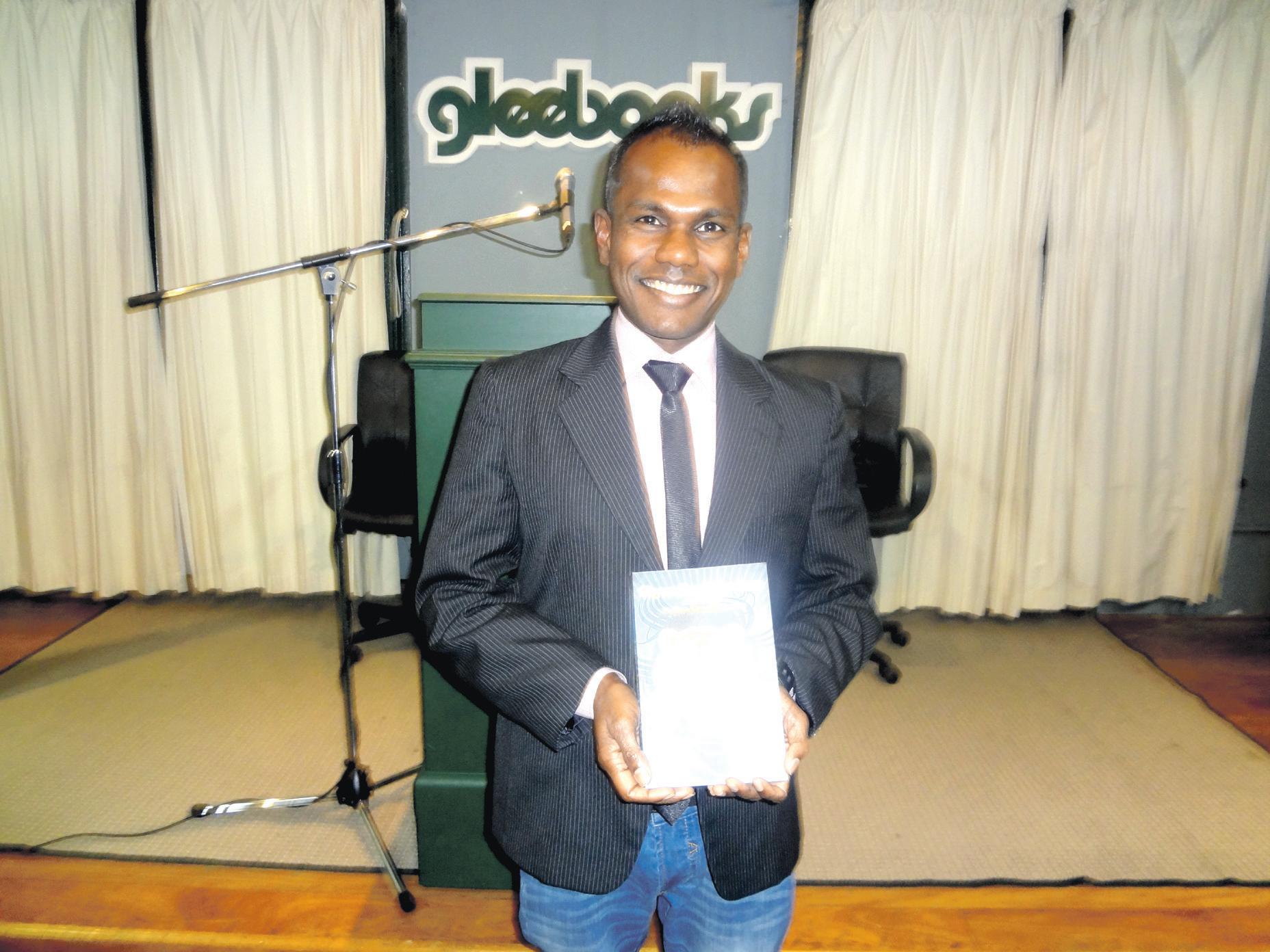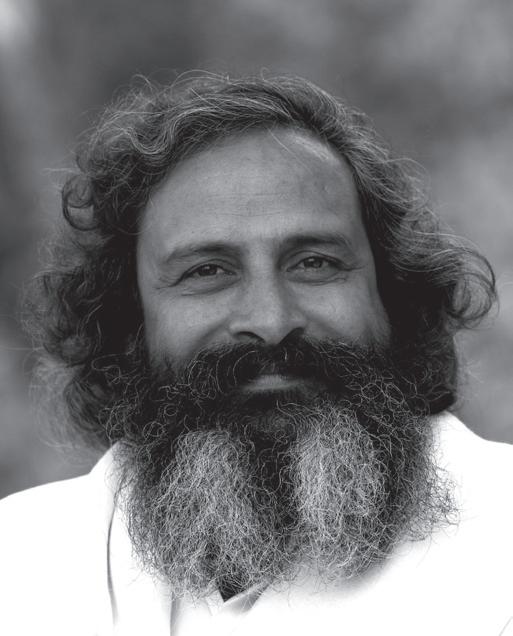
3 minute read
Truth through fiction
from 2012-08 Sydney (1)
by Indian Link
The reality of the conflict between the LTTE and Tamil Tigers is chronicled through a compelling new work of fiction
a gripping fictional narrative revolving around the so-called ‘confessions’ of Tamil Tigers. Spine-tingling scandals and illicit love affairs between captivating characters are also woven into the plot to create an exciting thriller.
into prison after being accused of associating with the Tigers. The novel poignantly tracks the torture that Kumaran endures behind bars and the deepening agony of his family, particularly his Amma.
isakesa “Vissa”
Chandrasekaram beamed with pride at the official launch of his Tigers Don’t . Held at Gleebooks in Sydney on July 27, the launch date marked the 29th anniversary of Black July, one of the most tragic events in Sri Lankan history.
Friends and colleagues of the well-rounded human rights lawyer, playwright and author, joined together to applaud Vissa for his literary achievement.

But, the launch of Tigers Don’t Confess was not the only cause for celebration on the night.
Two weeks earlier, Vissa received his Doctor of Philosophy testamur from the Australian National University for successfully completing his thesis titled, Do Tigers confess? An interdisciplinary study of confessionary evidence in counter-terrorism measures of Sri Lanka.
Vissa’s project was a fundamental driving force behind the production of his novel.
“Not everyone wants to read a thesis, but many would read a work of fiction,” he said. “Also fiction shrouds the truth, so my book will evade censorship”.
Tigers Don’t Confess is set in the early 1990s, when the Sri Lankan government was at war with the Liberation Tigers of Tamil Eelam (LTTE). Using factual, wellresearched data from his PhD thesis, Vissa was able to construct
Joining Vissa to launch his novel were guest speakers Dr Yasmin Tambiah, Writer and Senior Research Development Officer at the University of Western Sydney; and Dr Vicki Sentas, a lecturer in Law at the University of New South Wales.
“Vissa is a playwright who pushes conventional boundaries,” said Dr Tambiah.
While she admitted that the novel would have benefitted from additional editing, her evaluation of the book was encouraging and overall positive.

Dr Tambiah commended the book for its ability to provoke compelling questions in the mind of the reader, such as why and how is the enemy constructed and explained; and, what is justice and how does one serve it?
She also praised Vissa for his ability to seamlessly integrate the very substance of Sri Lankan culture into the narrative itself.
Tigers Don’t Confess carries a cast of complicated characters within its pages. One such character is Tissa, the Singhalese Deputy Chief of the Terrorist Investigation Team. Tissa’s struggle to make difficult choices and grapple with his own moral conscience incites the reader to squeamishly question what they would have done if they were placed in the same position.
But it is character Kumaran that truly strikes an emotional chord within the reader. This Tamil university student is thrown
According to Dr. Tambiah, Vissa’s experience as a lawyer is greatly reflected in the careful deconstruction of Kumaran’s confession and the courtroom scenes that surround his case.
It was certainly no coincidence that the date of Vissa’s book launch coincided with the 29th Anniversary of Black July. When asked why it was so important to launch Tigers Don’t Confess on the same date, Vissa responded saying, “Both Singhalese and Tamils are in denial about their share in it and tend to blame only the other party - the enemy. Black July is a good starting point for any discussion about justice and reconciliation because it was not something completely denied by the Singhalese majority in Sri Lanka.”
Guest speaker Dr Vicki Sentas gave a brief overview of the history of Black July.
Black July refers to a series of anti-Tamil riots that took place in Sri Lanka from July 24 to 29 in 1983. The violence was triggered by the murder of thirteen Singhalese soldiers at the hands of the LTTE, and around 3,000 Tamil civilians were massacred in subsequent pogroms that were sponsored by the government.
According to Dr Sentas, Black July was considered “a critical turning point for spiralling violence and conflict between the LTTE and the army”, and many Tamils fled Sri Lanka because of it.
Dr Sentas acknowledged that the LTTE also committed severe war crimes, namely using civilians as human shields and killing people who tried to escape the country.
But the Sri Lankan government is yet to take responsibility for the part it played in the massacre.
Dr Sentas also accounted for Vissa’s decision to create a fiction novel based on his thesis, which she called “the book behind the book”. She explained the dangers that Tamil and Singhalese people face in Sri Lanka for opening up about their experiences of the war. “By presenting his research behind the guise of a fiction novel, Vissa’s story can be shared in a manner that significantly evades risk,” said Dr Sentas.
Congratulations to Vissa on completing his PhD and novel. Well done, Vissa!
Using factual, well-researched data from his PhD thesis, Vissa was able to construct a gripping fictional narrative revolving around the socalled ‘confessions’ of Tamil Tigers
It was certainly no coincidence that the date of Vissa’s book launch coincided with the 29th anniversary of Black July










